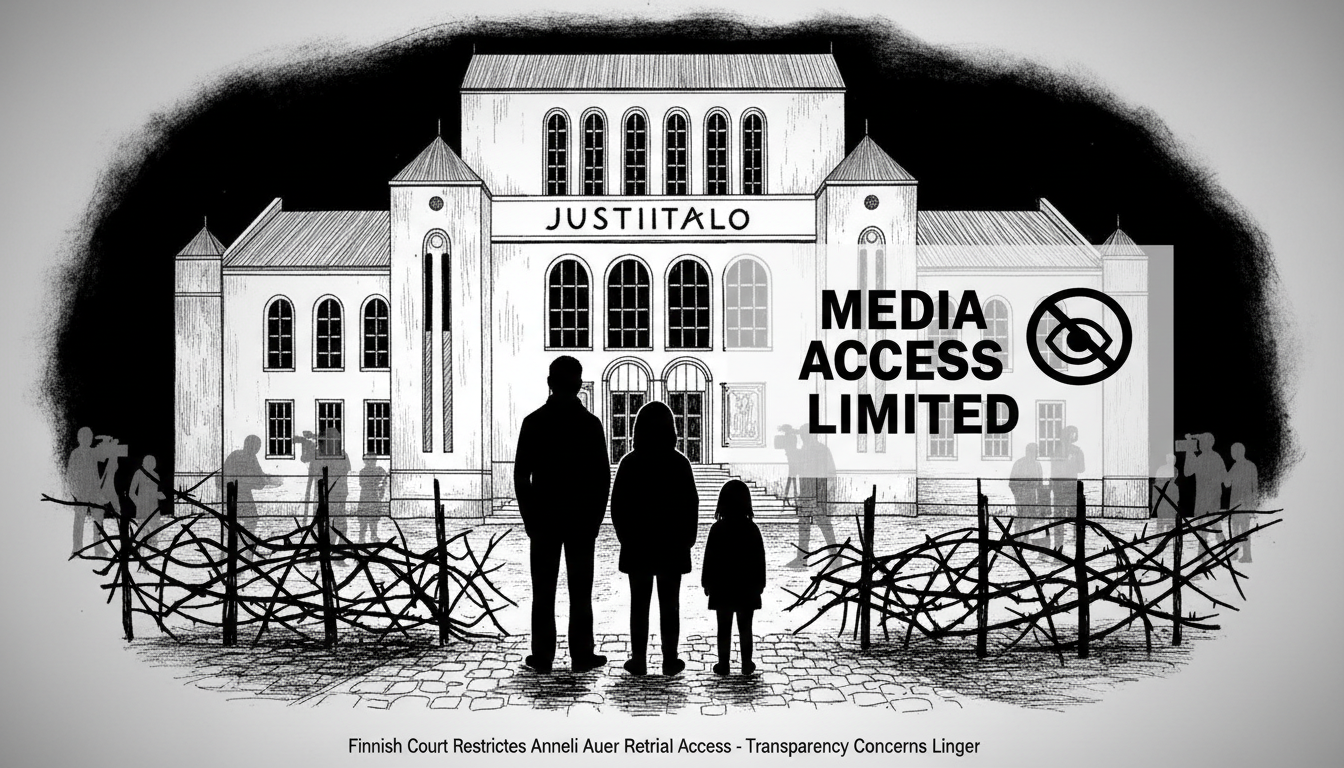A Finnish district court has limited journalist access to the high-profile retrial of Anneli Auer and Jens Ihle, creating controversy in a case that has spanned nearly two decades. The court in Southwest Finland began rehearing sexual crime allegations despite the children involved now stating their original testimony was false.
The courtroom situation became problematic when not all media representatives could fit inside the small hearing room. One journalist was denied entry entirely. This contradicts explicit requests from both parties for maximum public transparency in the proceedings.
This case represents one of Finland's most complex legal sagas. Auer was previously convicted and then acquitted of her husband's 2006 murder. She later received substantial compensation for wrongful imprisonment. Now the sexual crime convictions from 2013 are being reconsidered after the Supreme Court overturned them.
The adult children currently claim they fabricated stories of abuse under pressure from foster parents. They say they were manipulated into making false allegations against their mother and her former partner during childhood interrogations.
The prosecution seeks severe sentences for aggravated rape and assault charges. Both defendants, now in their sixties, face the possibility of renewed prison terms if convicted.
Legal experts note this case highlights challenges in handling historical abuse allegations. The Finnish justice system must balance protecting children with ensuring fair trials when testimony changes years later. The court's decision to limit media access raises questions about transparency in such sensitive matters.
During today's proceedings, the court planned to review interrogation videos from 2011. In those recordings, then-12-year-old Auer's son and his two younger sisters described their mother and older sister murdering their father and subsequent abuse.
The retrial continues a legal journey that began with Jukka S. Lahti's murder in December 2006. Initial police suspicion focused on an unknown intruder. The case took numerous turns through different courts over the following years.
Auer's children first recanted their testimony in 2023, leading to the current retrial. Their reversal prompted the Supreme Court to vacate the previous convictions and order new proceedings.
The court will hear Auer's son testify about his childhood experiences. This marks his first court appearance in the renewed case. Previous sessions already featured testimony from Auer's two youngest daughters and their interrogation videos.
The retrial is scheduled to continue into next year. The Southwest Finland District Court will deliver its verdict in the coming months. This outcome could finally resolve one of Finland's most protracted legal battles.
The case demonstrates how witness testimony can evolve over time. It also shows the Finnish legal system's willingness to reconsider convictions when new evidence emerges. The court's handling of media access nevertheless raises concerns about judicial transparency.

